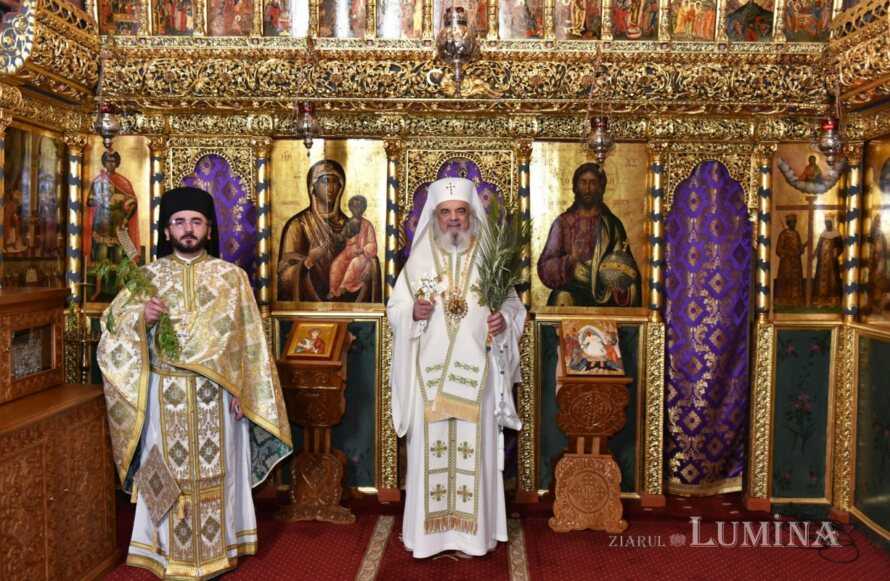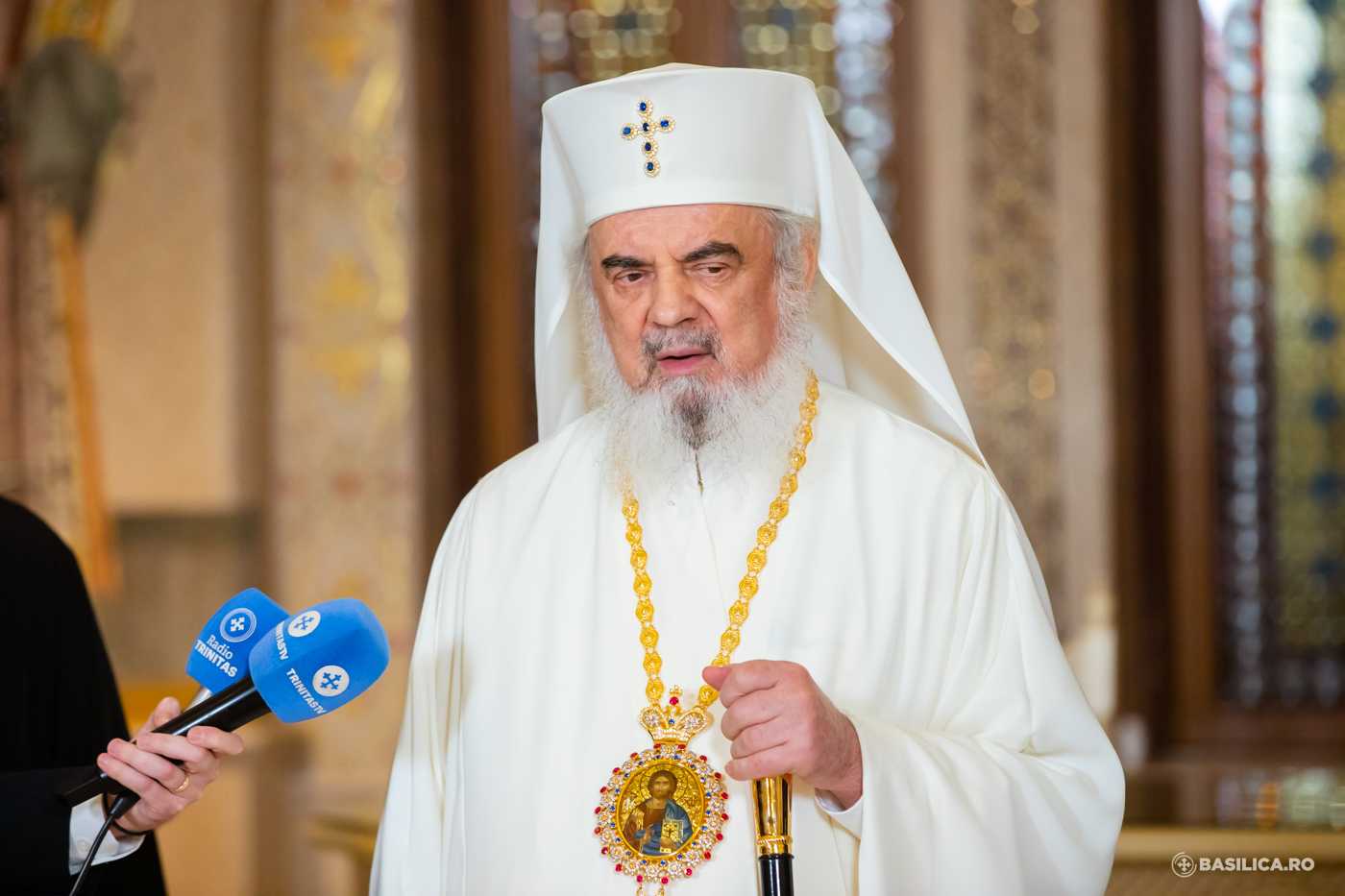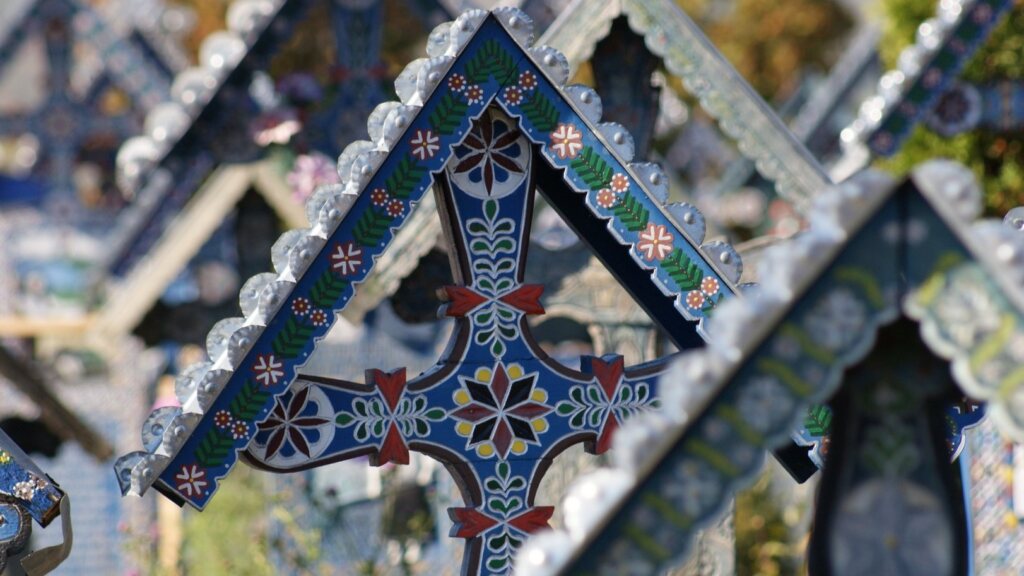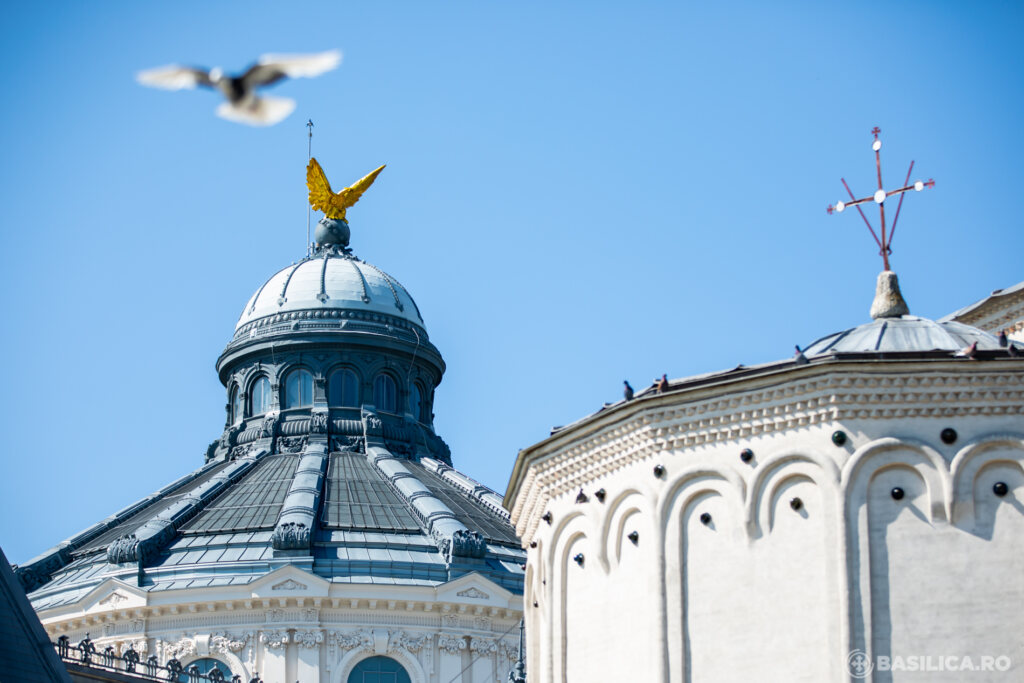Speaking about the anointing of the Saviour’s feet with precious myrrh, Patriarch Daniel emphasised during his sermon on Palm Sunday that honouring God with objects or gestures of great price should not be put in opposition to helping the poor.
The Patriarch of Romania recounted the Sunday Gospel passage, which recalls how the sister of Lazarus, raised from the dead by the Lord, anointed the Saviour’s feet with spikenard myrrh at dinner, while Judas Iscariot asked why the myrrh was not sold for three hundred dinars to be given to the poor.
“In this myrrh of Mary are prophetically included all the vestments, paintings, icons, liturgical objects, all the beautiful gifts the faithful bring to the Church or to Christ in the Church.”
“We have in this gesture a prophetic approach to the sanctifying work of Christ and to the visible beauty in the Church, which, however, leads the faithful to the unseen but eternal beauty in the Kingdom of Heaven, into the heavenly Jerusalem,” His Beatitude Patriarch Daniel explained April 17.
“Here the Saviour Jesus Christ made it clear that there is no contradiction between love for Him and love for the poor and said: ‘you have the poor with you always, but you do not have Me – as a physical presence in this world – with you always’,” the Patriarch of Romania noted.
“The Saviour Jesus Christ says that honouring Him in the Church with objects and gestures of great value must not be put in opposition to helping the poor. The work for holiness is not opposed to the social work of helping the poor. So, Christ the Lord teaches us that we cannot oppose complementary things and that love for Christ is shown first by prayer in the Church and then by good deeds shown towards our fellows in need,” His Beatitude underlined.

The miracle that polarised the people
Next, the Romanian Patriarch detailed the context of the Lord’s entry into Jerusalem the day after the dinner when his anointing took place.
“The Lord’s entry into Jerusalem is motivated primarily by the fact that the crowds learned that He had raised from the dead His friend Lazarus who had already been dead for four days and was beginning to decompose.”
“This was the greatest miracle before His resurrection from the dead. It polarised the people very quickly. After seeing Lazarus raised from the dead, a crowd of people who went to Bethany believed in Jesus and followed Him, abandoning the scribes and Pharisees who were traditionally their teachers.”
“Multitudes of simple people loved, admired and followed Christ, and the religious leaders of the people increased their hatred and envy of Jesus. The main reasons He was condemned to death were envy – because He was loved by the people – and hatred because the people followed Him. In a way, it was then that the decision was made to kill Jesus and Lazarus, proof of the miracle that Christ had performed.”
“The resurrection of Lazarus hastened the death of Jesus. Knowing that people wanted to kill him, Lazarus fled to Cyprus, where he lived for another thirty years and was bishop of Kittium, today’s Larnaca,” Patriarch Daniel added.
His Beatitude also stressed that the Entry into Jerusalem is a sign of Jesus’ victory over the death of his friend Lazarus, as proof of the resurrection of all humans at the Last Judgement, and as an anticipation of victory over His death.
“Therefore, this feast is a foretaste of Pascha, an anticipation of the joy of the Lord’s Resurrection.”
The flowers and palm branches carried in the hands symbolise “the flowers of light gathered in the soul for forty days of Lent, flowers gathered through prayer and repentance, fasting and penance, partaking of the Holy Mysteries and good works.”
At the end of his sermon, the Patriarch of Romania congratulated those who bear flower names and listed the most common ones.
According to the Ministry of Internal Affairs statistics, more than 1.5 million Romanians celebrate their name day on Palm Sunday, about 630,000 men and more than 850,000 women.
Photography courtesy of Basilica.ro / Mircea Florescu
Follow us on Twitter: @BasilicaNews






